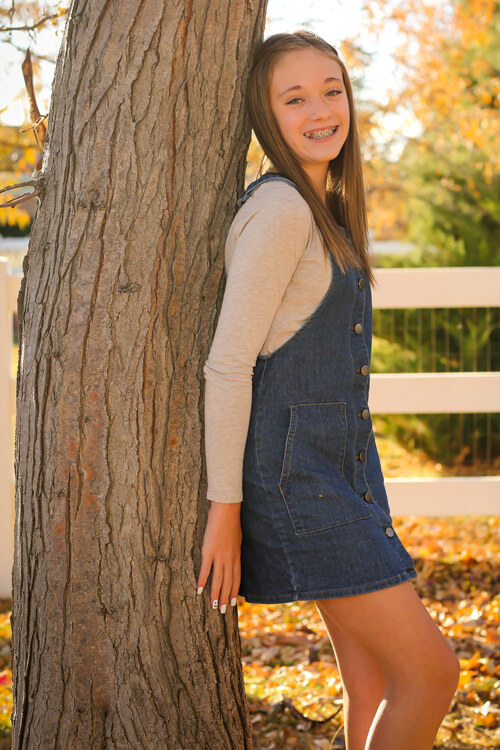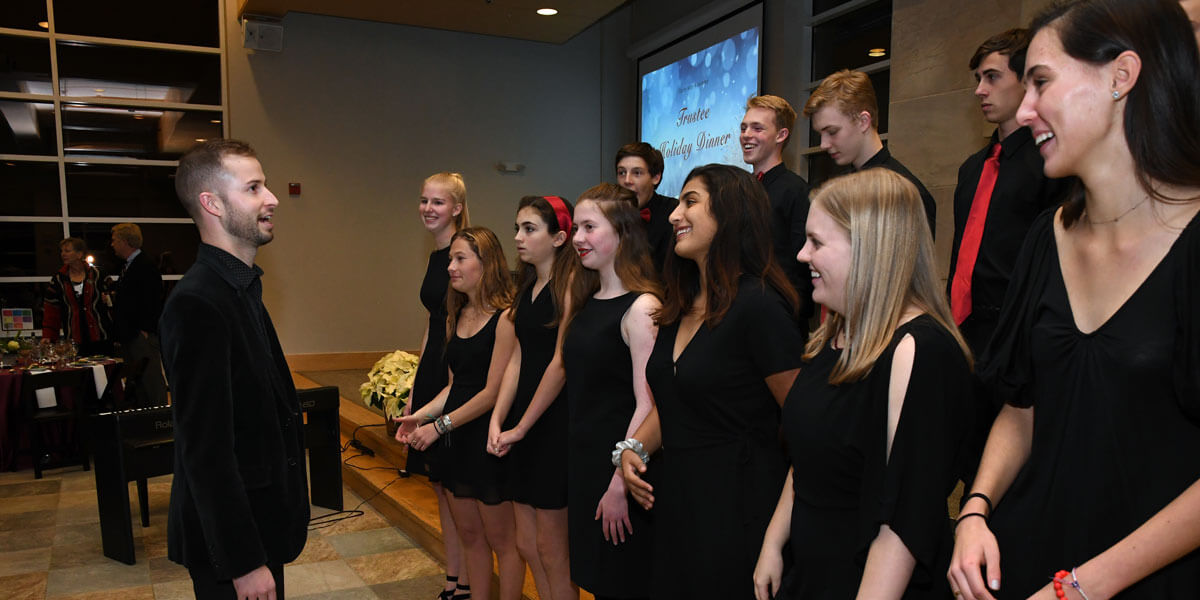Looking back at 2020, Colorado Academy Vocal Music Director Dr. Kevin Padworski remembers the downbeat—the first indication that his professional world was about to turn upside down. In February, Padworski was scheduled to be a guest speaker at the annual Texas Music Educators Conference, which would bring more than 25,000 current and future music educators to San Antonio, Texas. At the same time, there were daily reports from around the world about a novel virus causing illness and death. Just to err on the side of caution, Padworski regretfully decided not to attend the conference.
Fast forward to May when the Centers for Disease Control (CDC) released its now well-known report about a choir practice in Skagit County, Washington, which turned into a COVID-19 superspreader event. Of the 61 persons in attendance, 87 percent contracted COVID-19, all cases that were traced to the rehearsal. Two people died. The event was summed up succinctly by the CDC: “Transmission was likely facilitated by close proximity (within 6 feet) during practice and augmented by the act of singing.”
“Even before Washington, we saw the writing on the wall,” Padworski says. “After that event, though, it was super clear. We were not going to be singing during a pandemic.”

‘No way were we going to be singing’
Eighth Grader Addie Vath signed up for Choir in the first trimester, because she “had heard what an amazing choir teacher Dr. P is.”
“I like to sing, because you can express your emotions,” Addie says. “Singing opens you up to so many perspectives in your world.”
Addie also likes the break in her day offered by choir. “Choir is fun,” she says. “Unlike a math class where you have to use your whole brain, Choir lets you be creative.”
Before school started, Vath was unsure whether singing would go on. Then, when she realized that masks would be required at school, she could see the future: “No way were we going to be singing.”
‘Throw out my entire curriculum’
When Padworski finished the last school year on 100-percent remote learning, he had hope that by fall 2020, things would change. By July, however, reality set in. “I realized I would have to throw out my entire curriculum,” he says. “Nothing I am teaching right now is anything I have taught before.”
Padworski fell back on training he had in music technology, going back to when he was in high school. Taking advantage of CA’s Composition Lab, with multiple Digital Audio Workstations (DAW), he introduced students to the magic of digital music creation, using tools like the DAW and MIDI (Musical Instrument Digital Interfaces.) Students learned they could type on a keyboard and create music.
Padworski also taught students basic song form and threw in a little music theory for good measure. He bought Soundtrap, new cloud-based software that he could use to work with students on creating music, even if the students were learning remotely. Alongside his students, Padworski was also learning.
“I’ve learned that, even in a pandemic, students yearn to create,” Padworski says. “That’s what’s kept me reinventing ways to teach.”
‘An explosion of art’
Padworski says the nationwide choral community has done a wonderful job of sharing ideas for music education during a pandemic. Teachers get ideas on the podcast Music (ed) Matters, and they share curriculum through Google. Padworski posted three of his lesson plans online—they have now been downloaded more than 10,000 times.
His students’ favorite project was learning to score music for film. They listened to movie favorites like The Godfather, Star Wars, Avatar, Jurassic Park, and Titanic and analyzed how music can evoke emotion and change the entire effect of a film. Then they went to work. You will be impressed by Addie’s film score, entitled “Lights + Out.”
Even though she didn’t get to sing a note during the first trimester, Addie came away from Choir feeling like it was time well spent.
“In the long run, to be a singer you have to know the basics and how to compose,” she says. “It was great background and foundation for the future.”
Padworski, who says he has just endured “the quietest December of my lifetime,” looks forward to the time when singers and director will again join to build trust and to sing together.
“I think we will have an explosion of art like we have not seen for 100 years,” Padworski says. “And we will experience it with a deeper level of gratitude.”
